.png)
At the Region is an ongoing feature that discusses the state-by-state training, certification and employment requirements of first responder departments across the nation. In this issue, At the Region looks at Firefighter requirements in FEMA Region VII: Iowa, Kansas, Missouri, Nebraska.
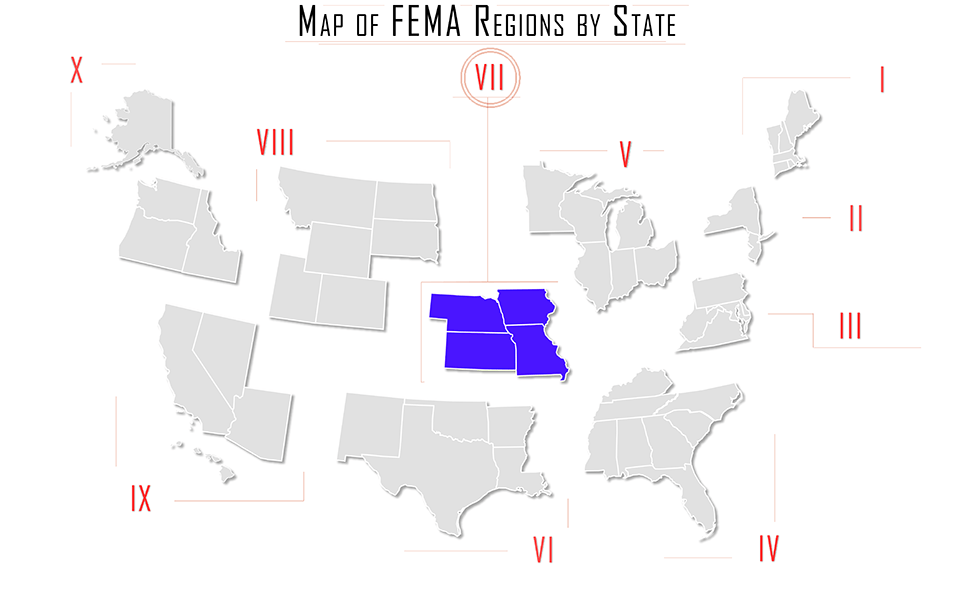
FEMA Region VII - Firefighters
Iowa
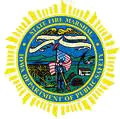
The minimum standards for Iowa firefighters are found in the Iowa Administrative Code: 661—251.101(100B) Minimum training standard. On or after July 1, 2010, any member of a fire department shall have completed the training requirements identified in the job performance requirements for the fire fighter I classification in NFPA 1001, Standard for Fire Fighter Professional Qualifications, 2002 edition, chapter 5, prior to the member’s engaging in structural fire fighting.
In addition to the minimum training standards, all fire department members must participate in at least 24 hours of CE a year. 661—251.103(100B) Continuing training.
For Firefighter I:
Prerequisites:
Candidates seeking certification, for Fire Fighter I, within the Iowa Fire Service Training Bureau Certification System must meet the following:
1. Be a current member of an Iowa fire, emergency or rescue organization. In
addition to the membership requirement, all persons must be at least 18 years of
age.
2. Verification of the following by Fire Chief or Employer:
• Medical care training in infection control, bleeding control and shock
management.
• CPR
3. Candidate must be competent in all objectives listed in:
• NFPA Standard 1001, 2208 Edition for Fire Fighter I
• NFPA 472 Hazardous Materials Operations Level
For certification, all candidates must pass a written exam with 70% and a practical exam with 100%. For other certification levels and to download procedure guides and information, visit: http://www.dps.state.ia.us/fm/fstb/NewWebStuff2012/Certification/index.s...
Kansas
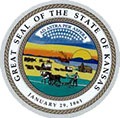
Kansas certifications are state specific, and available at several local universities and community colleges. The Kansas Fire Service Training Commission was mandated in a 2002 revision of the 1949 statute that established fire service training at KU. https://kufire.drupal.ku.edu/about-kansas-fire-rescue-training-institute
More information about the training and certification program, upcoming exam schedule, and for study, please visit: http://kufire.ku.edu/firefighter-certification
A fantastic resource from the Kansas State Fire Marshal available to Kansas Fire agencies is the DVD, Books, and Curriculum resources that will be sent to the agency, the only cost? Return postage. For more information, to see the catalog, or to contact the department to order resources, please visit: http://firemarshal.ks.gov/docs/default-source/training-resources/2013-re...
Missouri
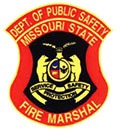
Missouri Revised Statute 320.202 states:
The fire marshal and the division shall be responsible for:
(1) The voluntary training of firefighters, investigators, inspectors, and public or private employees or volunteers in the field of emergency response, rescue, fire prevention or preparedness;
“Although certification is not mandatory in the state of Missouri, the Division of Fire Safety has issued more than 71,000 certifications at various levels to more than 28,000 individuals.”
For links to the course registrations, dates, and approval forms, please visit:
http://www.dfs.dps.mo.gov/programs/training/
For the testing and certifications policy and procedures manual visit:
http://www.dfs.dps.mo.gov/documents/forms/MO_815-F0043.pdf
Reciprocity and equivalency information begins in the procedures manual on page 55. http://www.dfs.dps.mo.gov/documents/forms/MO_815-F0043.pdf
8.1 Reciprocity
Individuals holding certification accredited by the International Fire Service Accreditation Congress (IFSAC) or the National Board on Fire Service Professional Qualifications (NBFSPQ) must comply with the following guidelines:
A. Candidate must complete the appropriate application and attach supporting documentation.
B. Certificates must clearly indicate IFSAC or NBFSPQ Accreditation for the level of certification.
C. Provide the Division with written verification from the non-Missouri certifying authority that the applicant’s certification is current, valid and in good standing.
D. The candidate must be a member of a Missouri Fire Department and must have signature of the Fire Chief in order to request reciprocity
E. Applicant must meet the general requirements for certification as outlined in the appropriate certification booklet.
The Missouri Division of Fire Safety Training Division will review and verify all documentation. Once documentation has been reviewed and verified to meet the certification criteria, the candidate will be issued reciprocity. If documentation does not meet the certification requirements, the candidate will be denied reciprocity. The candidate would then be required to complete an approved training program and meet all certification requirements including, but not limited to, passing written and practical skills certification exams.
Nebraska
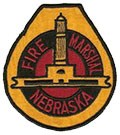
The certification of firefighters is voluntary in Nebraska. “The Nebraska State Fire Marshal Training Division, by way of state statute number 81-5,151, offers certification to firefighters and other emergency response personnel. No component of the statute states or insinuates in any way that certification is required or that it must be attained before advancement in a particular field or status can be accomplished. Certification in Nebraska is voluntary, unless the Authority Having Jurisdiction sets forth a local policy requiring responder certification.”
Minimum age for certification is 18.
For Nebraska, the following NFPA Standards are the standards for state certification:
FIRE FIGHTER I
• NFPA Standard 1001, Standard for Firefighter Professional Qualifications, 2008 Edition
• NFPA Standard 472, Professional Competencies of Responders to Hazardous Materials Incidents
FIRE FIGHTER II
• NFPA Standard 1001, Standard for Firefighter Professional Qualifications, 2008 Edition
HAZARDOUS MATERIALS: FIRST RESPONDER OPERATIONAL LEVEL
• NFPA Standard 472, Professional Competencies of Responders to Hazardous Materials Incidents, 2008 Edition
For a list of scheduled courses, please visit: http://www.nebraskasfmtd.org/Courses/Courses_Avail.aspx
For the Certifications and Testing Policy and Procedure Manual, please visit: http://www.nebraskasfmtd.org/SFMTDO_/PoliciesProcedures/CPP_Manual_04091...
Reciprocity information begins on page 40 of the manual:
Reciprocity:
Reciprocity from the Training Division with other entities bearing certification status to the International Fire Service Accreditation Congress or to the National Board on Fire Service Professional Qualifications is established as follows.
Process:
Candidates applying for reciprocity to any available level in Nebraska shall be granted a certificate of certification recognition after following the procedures for a Nebraska Certificate of Reciprocity.
The candidate, if requesting that his/her certificate of certification from another certifying entity be recognized within the State of Nebraska, shall complete the ‘Request for Certificate of Reciprocity’ form on the Training Division website at www.nebraskasfmtd.org under ‘Certification’, and shall submit a paper copy of the certification certificate to the Training Division along with the fee. See ‘Fees’ section for examination costs.
Upon verification of the certificate and the respective edition of the standard and level applying for, the Training Division may issue a Nebraska Certificate of Reciprocity to the individual for purposes of stating the following: The State of Nebraska and the Training Division recognize “stated individual” as having been certified by another entity by a program recognized by either the NBFSPQ or by IFSAC. The Training Division may issue a Certificate of Reciprocity for the level of the standard and corresponding edition for the original certificate of certification from the other entity.
The Training Division will not issue a Certificate of Reciprocity for certification for a certificate of equivalency or any other grand fathering process acceptable to any other entity. The Training Division will not issue a Certificate of Reciprocity for a certificate and upgrade the candidate to the current edition of a standard recognized by the State of Nebraska, but will only issue to the level and edition of the original certificate.
To encourage more local volunteer firefighters in the state of Nebraska, the Nebraska State Volunteer Firefighters Association (NSVFA) administers a tuition assistance program for eligible first responders. Please visit http://www.volunteerfirefighter.org/ne/strive.php for more information.








